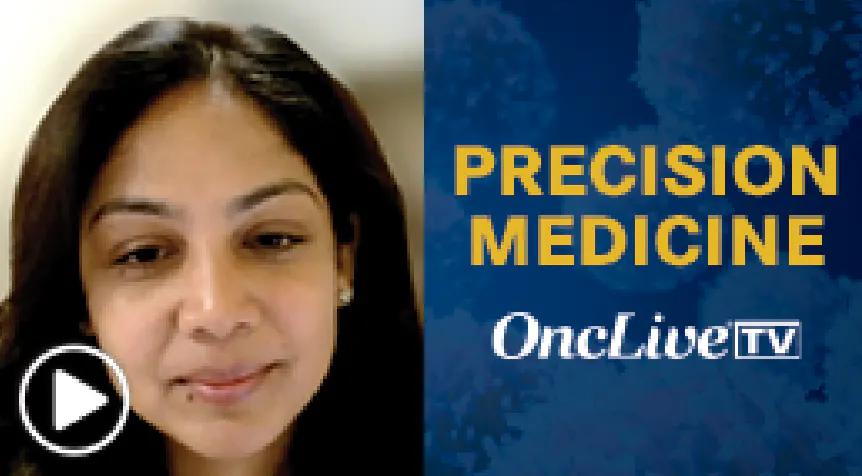
Nina D’Abreo, MD, assistant professor, Department of Medicine, New York University Grossman School of Medicine, chief, Division of Hematology and Medical Oncology, Perlmutter Cancer Center, discusses the importance of considering a patient’s medical history and preferences when deciding on a treatment course in HER2-positive breast cancer and highlights the important role of surgeons within breast cancer treatment.
When selecting treatments for patients with HER2-positive breast cancer, the foremost consideration is understanding the patients’ disease profiles and past toxicities they may have experienced, D’Abreo begins. For example, a patient with prior taxane exposure and residual neuropathy might face challenges with a full course of ado-trastuzumab emtansine (T-DM1; Kadcyla) due to underlying neuropathy, she emphasizes. Patient preferences, such as an aversion to alopecia, is also crucial to consider, D’Abreo says.
Familiarity with the drugs’ toxicity profiles and thorough advance knowledge of the patient are essential, she expands. Patients with prior radiation and underlying lung issues may not be ideal candidates for fam-trastuzumab deruxtecan-nxki (T-DXd; Enhertu) and may require closer monitoring, D’Abreo notes. Close monitoring, in addition to safety data, has played a significant role in minimizing toxicity, evident from the advancements with T-DXd made in the DESTINY suite of trials, she explains, adding that vigilance regarding lung toxicity, for example, is vital to ensuring patients receive the full benefit from this agent.
Furthermore, in the treatment of these patients, surgeons play a pivotal role in disease management, and can be integrated into treatment decision making through multidisciplinary conferences, D’Abreo continues. With the introduction of neoadjuvant therapy, logical responses guide the assessment of therapy efficacy, she says. Surgeons contribute significantly by identifying the patients who meet neoadjuvant therapy criteria and swiftly proceeding to surgery to assess pathologic complete response, D’Abreo emphasizes. Educating surgeons about treatment criteria and informing them of available neoadjuvant trials is essential, she adds. Surgeons are the primary point of contact for many patients, and their awareness of available trials facilitates patient education. The early involvement of surgeons in treatment decision making has proven to be a valuable asset, D’Abreo concludes.

